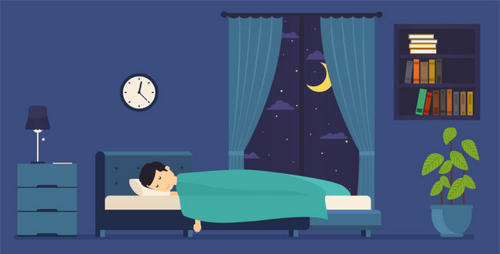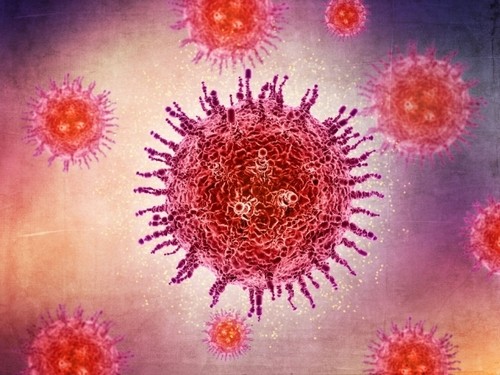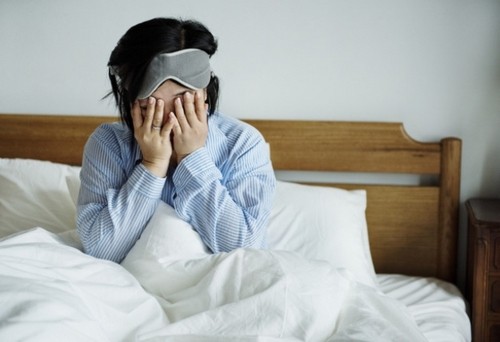The doctor will help to establish the correct “sleep habits”, and if necessary, may prescribe cognitive-behavioral therapy or prescribe medication. Most often, these are remedies for insomnia or drugs with melatonin – this hormone helps to establish the rhythm of sleep and wakefulness.
If you suspect that you may have sleep disturbances, you should consult a doctor. The doctor will make the correct diagnosis and help you choose the treatment that is right for you.
By the way, if you fill out one of the tests on the website of the Sleep Medicine Center of Moscow State University named after M.V. Lomonosov, then within an hour (during business hours) you will receive a preliminary opinion from an expert with recommendations on further actions. This service is provided free of charge.
Any doctor of a therapeutic orientation – a therapist, pulmonologist, neurologist, psychiatrist, ENT – is required to evaluate the quality of sleep in a patient. Unfortunately, not all Russian doctors do this. If you have trouble sleeping, you will likely have to consult a somnologist.

A somnologist should contact a person who:
- snores loudly and suffers from respiratory arrest in a dream;
- feels that he is not getting enough sleep, and cannot restore his sleep;
- difficulty falling asleep in the evenings;
- often wakes up at night and then cannot fall asleep.
It is not worth it to prescribe yourself sleeping pills – the body quickly gets used to the pills and they stop acting. In addition, some drugs that are used to treat insomnia are unsafe for health and should not be abused.
The best thing you can do with sleep problems is to lead a healthy lifestyle. If you form good sleep habits, learn to control weight and relax, give up alcohol and coffee at night and consult a doctor about sleep apnea and necessary medications, you will most likely be able to solve sleep problems.
Sleep is when we close our eyes and partially lose consciousness. In this state, we spend about a third of our lives. And although everyone knows perfectly well that it’s harmful to sleep, we still sometimes stay up until two in the night, and on weekends we lie in bed for up to two days.
Of course, this is not necessary. The fact is that sleep is not a break in the brain, but an active process, during which the brain intensively strengthens our health and restores order in the body.
Adjusts the metabolism. For example, it regulates the level of the hormone leptin, which is responsible for appetite. That is why sleep deprived people often overeat and are overweight.
Strengthens antimicrobial protection, enhancing the early stage of the immune response. So people who sleep little are more vulnerable to infections than those who get enough sleep. For example, people who were allowed to sleep after hepatitis A vaccination had more antibodies to the virus than people who were not allowed to sleep.
“Turns off” inflammation. Controlled inflammation is an important protective reaction of the body. Uncontrolled inflammation is one of the causes of the early development of cardiovascular diseases and other age-related diseases. In general, we will sleep poorly – we will grow older faster.
Writes new information to long-term memory. Do not get enough sleep before exams if you have studied hard before, is a bad idea. Maybe you’ll pass the exam, but it’s unlikely that in a week you will remember what you taught.
Lack of sleep within just one hour from the norm leads to a change in the activity of the human genome. Because of this, the regulation of many cognitive processes is disrupted, including learning and memory.
Carries out “maintenance” of the nervous system. In fact, we do not yet know exactly how the brain “restores” itself. But there is a version that it is in a dream that the brain removes the amyloids accumulated during wakefulness – the substances that cause Alzheimer’s disease.
In general, sleep is a necessary thing for the health and self-regulation of the body, because our health and emotional well-being depend on the quality of sleep. The less we sleep, the higher our risk of obesity, heart disease, or diabetes.
Getting enough sleep is important not only for adults. Full sleep is necessary at any age. For example, adolescents with poor sleep performance are worse and there is a higher risk of injuries, and if sleep is disturbed in older people, after five years they have an increased risk of dementia.
How to understand if you sleep enough
Count how much time you spend in a dream
Most of them have enough 8 hours of sleep per day. But there are exceptions – the need for sleep varies significantly depending on age.
How much to sleep :
- newborns – 16-18 hours;
- preschoolers – 11-12 hours;
- schoolchildren – at least 10 hours;
- adolescents – 9-10 hours;
- adults and the elderly (18–65 years old) – 7–9 hours.
The main symptom of lack of sleep in adults is increased daytime sleepiness. Moreover, a person may not notice a lack of sleep.
I had patients whom I asked: Do you complain of increased drowsiness? They answered “no” and fell asleep right at the reception.
In other people, daytime sleepiness may manifest as chronic fatigue syndrome. They feel overwhelmed all the time. In addition, increased drowsiness can manifest itself in a decrease in working capacity, a deterioration in memory and quality of life in general.
Important is not only the duration, but also the quality of sleep. If there are violations in the form of respiratory arrest, snoring, excessive motor activity, the sleep becomes fragmented, the person does not get enough sleep.
Symptoms of lack of sleep in children – hyperactivity, decreased performance and behavior changes, which can be very different from the behavior of their rash peers.
Understand how well you sleep
Ask yourself three simple questions :
- Is it hard for me to get up in the morning?
- Is it difficult for me to concentrate on work or study during the day?
- Was I drawn to a nap during the day?
If the answers to all three questions are in the affirmative – most likely, you do not get enough sleep.
How to finally get enough sleep: instructions for healthy people
If you do not get enough sleep, this does not mean that you are sick with something. Although this is not good, many healthy people are constantly lacking sleep.
We recently completed a three-year study in which drowsiness was assessed on a special scale. The study involved more than 5 thousand people from 331 cities of Russia. Most of the participants were from 20 to 30 years old.
We were amazed to learn that 40.9% of the study participants are chronically sleep deprived – and such results are typical not only for Russia, but also for the world as a whole.
Unfortunately, many people save on sleep in order to do more. But in no case can this be done. Saving on sleep – saving on your own life and health.
A set of life hacks for falling asleep, which is called sleep hygiene, can finally help to sleep. Just follow the instructions every day – and then you yourself will not notice how you gradually develop the habit of sleeping properly.
Stick to your sleep schedule
- go to bed at the same time;
- try to ensure that the schedule for going to bed and getting up on weekdays and weekends either coincides or moves no more than an hour;
- fall asleep only if you are tired. If you can’t sleep at all for 20 minutes, get out of bed and do something calming: read a book (but not from your phone or laptop – gadgets shine in your eyes and interfere with sleep) or listen to soothing music. Began to nod – go back to bed.
Think before bedtime
- do not go to bed hungry. A good choice for dinner is a couple of apples or a salad;
- don’t overload at night. A burger at night with fries less than an hour before bedtime is a bad idea;
- try not to smoke before going to bed. Nicotine invigorates, it will be difficult to sleep;
- do not drink coffee. Although some people feel drowsy after a cup of coffee, not cheerfulness, it’s better not to drink it at night – caffeinated drinks reduce sleep quality;
- do not drink alcohol. Alcoholic beverages can cause drowsiness, but the quality of sleep will be so-so.
Create a calm environment
- sleep where it is dark and quiet. When nothing distracts you, you sleep best;
- take a bath or a warm shower.
Most people are comfortable sleeping in the dark – even dim lighting can affect sleep quality. But some people, especially those who suffer from anxious conditions, need a small light source – for example, a nightlight. This is the only way they feel safe and can safely fall asleep.
Limit your daytime sleep
Try to sleep no more than 30 minutes during the day. We advise you to read our article on how to sleep during the day and get benefits from it.
Move around
- walk more during the day – international recommendations advise giving yourself moderate physical activity, at least half an hour a day;
- try not to postpone intense workouts until late in the evening – this prevents some people from falling asleep.
Take a break from daytime tasks
- write down what worries you on a piece of paper – and then literally set it aside until tomorrow. For some people, this little ritual helps to stop scrolling upside down in your head;
- turn off (or put in airplane mode) all your gadgets. Even the most brilliant idea that came to the mind of a colleague can wait until morning.
If you honestly tried all the recommendations, but you still can’t get a good sleep anyway, you may have serious sleep problems. Let’s see what could be the reason and what can be done about it.
What are some sleep problems?
Insomnia – when you can’t fall asleep at all, or a sleep is disturbing and weak, so you wake up all the time. Insomnia is considered temporary if it lasts up to three months. If longer, they talk about chronic insomnia. It happens in people of all ages, in women it is more common than in men.
Hypersomnia – excessive daytime sleepiness: it seems that the prescribed 8 hours and even more were sleeping, but you still want to fall asleep. People with hypersomnia constantly feel tired and overwhelmed.
Respiratory distress during sleep. Hypersomnia often persists in people with viral infections like mononucleosis, with thyroid problems and with obesity – especially if overweight accompanies obstructive sleep apnea, that is, respiratory arrest in sleep.
There is a disease – refractory arterial hypertension, in which blood pressure rises for no apparent reason, and drugs to lower blood pressure do not help. In 70% of cases of refractory arterial hypertension, sleep apnea is detected in patients. Often this is precisely what leads to the appearance and development of arterial hypertension.
Problems with the rhythm of sleep – when you just can’t go to bed and get up on time. This often happens with older people, and also with specialists who work night shifts and travel between time zones.
Parasomnias – sleep disturbances: for example nightmares or sleepwalking. Parasomnia often affects children and adolescents.
Motor disorders. Chronic and infectious diseases, as well as restless legs syndrome, can interfere with good sleep. With this syndrome, a person constantly feels a tingling sensation in his legs and a strong desire to move them, which, of course, makes it difficult to sleep. In some cases, proper sleep hygiene helps to combat this, but in about half the cases, restless legs syndrome is associated with iron deficiency. If sleep does not help, an additional examination is required for an accurate diagnosis of people with this syndrome.
Healthy sleep is health. Sleep disorders affect the development of any disease – both from the somatic and from the mental sphere. Almost any pathological condition can be “disguised” as a sleep disturbance. One of them is a depressive disorder. Often, only an experienced doctor can recognize true endogenous depression and distinguish it from other causes.
A modern doctor who treats any pathology, no matter from the somatic or mental sphere, must take into account the patient’s condition during sleep. Without knowledge in this area it is very difficult to properly treat any disease.



